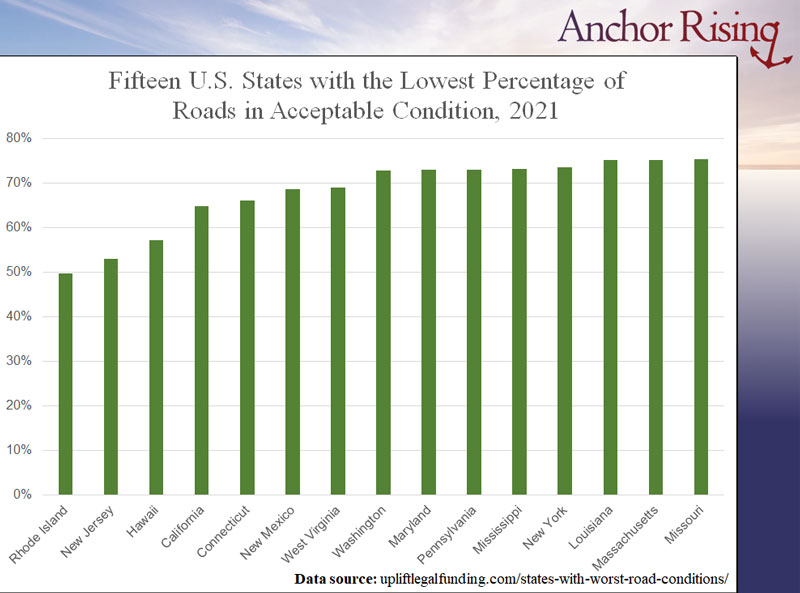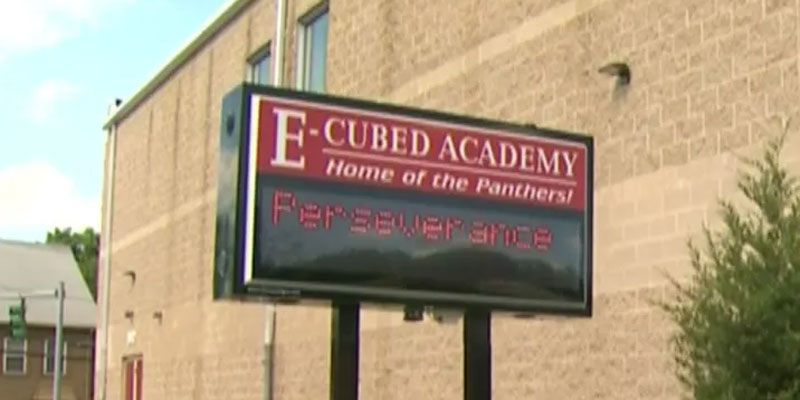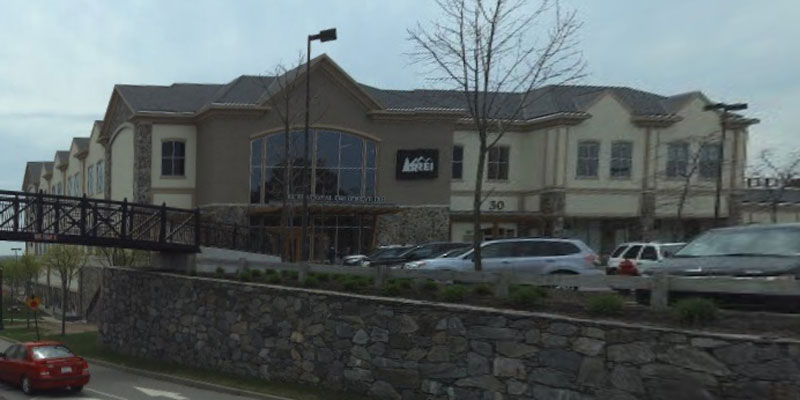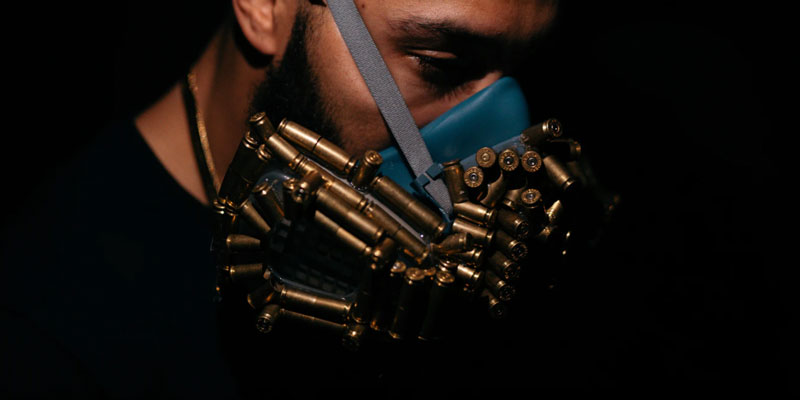Disturbing. Discouraging. Depressing. Evil. Pick your adjective, but in its succinctness and utter refusal to acknowledge contrary points of view, an argument that I’ve seen with some mild variation around the Internet recently feels as if, finally, we’ve gotten to the rotten core of a worldview:
Here’s the thing, guys.
It doesn’t matter.
It doesn’t matter when life begins.
It doesn’t matter whether a fetus is a human being or not.
That entire argument is a red herring, a distraction, a subjective and unwinnable argument that could not matter less.
It doesn’t matter whether we’re talking about a fertilized egg, or a fetus, or a baby, or a five year old, or a Nobel Prize winning paediatric oncologist.
NOBODY has the right to use your body, against your will, even to save their life, or the life of another person.
That’s it.
That’s the argument.
You cannot be forced to donate blood, or marrow, or organs, even though thousands die every year, on waiting lists.
They cannot even harvest your organs after your death without your explicit, written, pre-mortem permission.
Denying women the right to abortion means we have less bodily autonomy than a corpose.
Of course, this isn’t really a new argument, as the replies to the above-linked tweet assert, but something about the social media tone makes it feel as if it’s been brought to a fresh level of clarity. So much can be seen to be wrong in that sharp, peremptory phrasing that one is tempted to throw up one’s hands in despair at finding an entry point that might reach anybody who is so far gone that she or he is unable to see it without guidance.
Perhaps the key point at which distortion enters the logic is with that three-word phrase, “against your will.” To accept the relevance of this phrase to the abortion argument is to ignore biology that human beings have understood since the dawn of understanding. In all cases that sexual intercourse is consensual, that act is the expression of will. It is the invitation. Even if there is only a one-in-a-thousand chance that somebody will respond to the invitation, it is still being offered.
If you bring life into being, you have a responsibility to the child. You are her or his mother or father. Under the logic above, a woman could deliberately bring countless children into the world for the thrill of killing them before they’re born. Yet only a week or two ago, our nation was contemplating whether Kyle Rittenhouse would have lost his right to self-defense if he could be shown to have provoked others to attack him.
If you don’t have responsibility for lives that you create, then who does? Here’s where dishonesty appears in the bodily-autonomy argument. Those who express it in these terms are very unlikely actually to believe it in other cases. Even among the replies to the link above some spot the problem that it creates for those who support vaccine mandates. The response: “We do not force-vax, but we fine them or exclude them from society. Which is not the same at all; they are all free to go live in a cave somewhere else.” Fine, but just so, we could, per this person’s logic, fine women who have abortions and exclude them from society. More mildly, we could point out that it is not forcing birth for a community to decline to support the practice of abortion with licensure, subsidies, and the approval of the law. (Please note that I’m not offering a suggested regime, merely addressing the illogic of the opposing proposition.)
If we, as a community, have a right to protect children if we so choose, then the refusal to acknowledge women’s responsibility toward their own children opens the door to regulation of the activity that creates them.
Thus we come to the wide field of conflicts that the abortion argument has with other positions typically asserted by those who support it. Do fathers have an obligation to provide child support? Do doctors have an obligation to “use their bodies” to provide all legal forms of care to all people? Do people who work have an obligation to devote a portion of the earnings of their bodies to supply food and housing for others?
We can take up difficult cases separately, but categorically denying a mother’s responsibility to her children means the utter destruction of human society at its very core. Everything that is good about the human condition crumbles under this logic, which is why I think I’ll settle on “evil” as the most appropriate adjective.
[Open full post]News about former Providence principal Michael Redmond, and the fact that for a period of time he was working full time (during the same hours) for both the school district of Providence and the Washington, D.C., school district (remotely), has been broadly reported in Rhode Island. Unfortunately, the public debate falls quickly into the lines that divide Rhode Island insiders, above the heads (as it were) of regular parents and residents.
Redmond was a hire of former superintendent Harrison Peters, who was hired by Education Commissioner Angélica Infante-Green after a report by Johns Hopkins University researchers horrified the nation. Consequently, the divide between the commissioner and the teachers’ unions defines every such controversy.
I’d recommend stepping back, however, and attempting to read Alexa Gagosz’s Boston Globe coverage independently of that inside-politics framing:
Michael Redmond, who was hired as E-Cubed Academy’s new principal in July 2020, admitted to continuing to work virtually as the assistant principal at the Stephen E. Kramer Middle School in Washington, D.C., for 17 weeks after he started working full-time for Providence Public Schools.
According to a violation notice issued by the District of Columbia’s Board of Ethics and Government Accountability earlier this month, Redmond admitted to working on weekdays from 8:30 a.m. until 3:15 p.m. at Providence Public Schools while also working weekdays from 8:45 a.m. to 3:15 p.m. for D.C. Public Schools.
Rhode Islanders might note, sardonically, that it was D.C. that caught Redmond, not RI, but that could just be the luck of D.C.’s having had a whistleblower who cared. The observation shining forth from the story is that he managed this for more than four months, and it took somebody “alerting” the D.C. district for it to come to light.
At least according to Redmond, speaking to the Washington Post, he had “highly effective ratings” in D.C. and was “receiving excellent marks” in Providence. From his perspective, he was able to perform to expectations at both jobs.
There is the key question that the insiders don’t want to ask. Is this true? Was he meeting expectations? If so, his achievement doesn’t excuse his actions, but it does lead to another very important question: How pathetically low are expectations for school principals in Rhode Island (and D.C., for that matter) that somebody could work two jobs at the same time and still meet them?
That question gets to the core of Rhode Island’s public education problem — indeed, the problem with our public sector across the board. Thanks to labor unions, the system is set up as a jobs program for adults, not an organization to accomplish critical community tasks and meet the needs of children and others. Consequently, the system focuses more on what it can reasonably request of workers than what it can reasonably expect on behalf of the people being served.
Professionals in the private sector tend to see their jobs as their responsibility, and however many hours it takes to do the work, that’s what they do, often without being able to bill somebody for their time. Not so in the public sector, where powerful political players work to reduce accountability and ensure that every second is compensated at taxpayer expense.
If you want to know how a case like Redmond’s can happen, the answer lies there, not in the spat between the state, the district, and the union about who is ultimately calling the shots.
[Open full post]HillFaith has compiled a baker’s dozen of facts pertaining to unborn children at 15 weeks of gestation (via Mark Tapscott on Instapundit), such as these:
- The baby’s body responds to both touch and pain.
- The baby responds to light touches over most of the body.
- If something touches the palm of the baby’s hand, the baby will bend his or her fingers as if to grasp the object.
- Neurotransmitters specific to pain processing appear between 10 and 14 weeks’ gestation. The spinal nerves needed to transmit pain to the thalamus have formed by 15 weeks’ gestation.
In a pluralistic society recognizing a variety of rights and respecting differing religious beliefs, we can debate where different lines can be drawn, how much opinions can differ from one state to the next, and what the best approach to safeguarding life should be, but the truly extreme and totalizing approach of Roe v. Wade is a monstrous travesty.
[Open full post]When I worked with the RI Center for Freedom & Prosperity, we would periodically get tips from people about problems or corruption in our state, but the tipsters would very rarely volunteer to step forward. They feared, with good reason, audits, safety reviews, property inspections, and other forms of government harassment. Silence and toleration has long been a constant and low-level concession that we make to get by in the Ocean State.
When we require government approval for a huge percentage of our life and work activities, its officials have many screws they can tighten to force us to comply with their wishes, to accept their corruption, and to make an example of us. The smell of this state of affairs is very strong in the case of Cranston dental doctor Stephen Skoly.
With a test proving that he had natural immunity to COVID-19 and a policy of taking extra precautions during the pandemic, Dr. Skoly declined to be injected with one of the new vaccines. So, the state shut down his practice, depriving his patients of care and his employees of their jobs.
Now, the state Department of Health (DOH) appears to be working with the state Department of Labor and Training (DLT) to deprive Dr. Skoly, himself, of unemployment benefits, despite his having long paid into the system:
The RI Center for Freedom & Prosperity has obtained copies of notices from DLT to Dr. Skoly, citing “Voluntary Quit” and “potentially fraudulent activity” as reasons why his claims for unemployment benefits were “disqualified” … even though another government agency was directly responsible for Skoly’s unemployment status.
It was initially communicated by a DLT official that Skoly’s original benefit denial was in error … and would soon be remedied. However, it appears RI DOH has since over-ruled the DLT, as part of its effort to destroy Dr. Skoly for daring to exercise his first-amendment rights.
In some ways, this unreasonable, even fanatical, treatment has defined much of the government’s response to COVID-19. A fearful constituency very much wants to know that government has the power to force people to comply. Another powerful incentive can be found in officials’ need to reinforce their prior decisions with all subsequent ones so they can’t be challenged and create an aura of blame.
If we could expect that the lesson being made of Dr. Skoly will mean that the impositions go no further than the vaccination he refused, that would be bad enough, but nobody should trust that to be the outcome. More likely, the logic of power will dictate that individuals will have to make greater and greater concessions until we’re all wishing we’d stopped the process at an earlier milestone, like the persecution of a Cranston dentist.
Featured image of Dr. Skoly’s office building from Bing Maps.
[Open full post]We can probably expect outcomes like that described by Hank Berrien in the Daily Wire to become more and more common:
In November, a University of Pennsylvania swimmer who swam for the men’s team for the previous three years swam for the women’s team, dominating the competition.
Lia Thomas formerly used the name Will Thomas. Swim Swam reported on November 20 that Thomas “blasted the number one 200 free time and the second-fastest 500 free time in the nation on Saturday, breaking Penn program records in both events.” Thomas “swept the 100-200-500 free individual events and contributed to the first-place 400 free relay in a tri-meet against Princeton and Cornell,” the outlet reported.
Pushing the envelope of fantasy over reality, Thomas (pictured here) gushes that “being trans has not affected my ability to do this sport.” Yeah, no kidding.
This reminds me of the time, in 2003, a pair of young, intelligent, fit, wealthy, white, and well-traveled men won the reality show Amazing Race around the world and tried to make it into a story about how anybody can overcome challenges because they were gay. How much obviousness are we going to be expected to pretend is not obvious?
[Open full post]That’s the finding of a study by criminologists at several universities:
“Although the total reduction in homicide is roughly equal across Black and white victims, the decline in homicide is twice as large for Black victims in per capita terms,” the team said. Researchers on the project include Professor Benjamin Hansen of the University of Oregon, Emily Weisburst of UCLA and Aaron Chalfin at the University of Pennsylvania.
On average, across the 242 cities studied, one black resident’s life is saved for every 10 to 17 newly hired police officers.
This means, one, defunding the police is a reckless and counterproductive for activists concerned about minorities. It also means, two, that the total number of police killings of black Americans, whether excusable or inexcusable, is dramatically overbalanced on the positive side of the ledger.
[Open full post]Writing for Uplift Legal Funding, Leesa Davis took data produced by the Biden administration as part of its infrastructure presentation and compared it with total miles of roadway in each state, creating a rank by the percentage of roads in “acceptable condition. Take a bow, government of Rhode Island: once again, you’re number 1 for being worst!
In fact, Rhode Island is the only state in the United States for which more roads are unacceptable than acceptable, with 49.7% acceptable. Next lowest is New Jersey, at 53% acceptable, and on the other end of the scale is Idaho, with 96.4% of roads in acceptable condition. As shown in the following chart, the curve is pretty sharp. By the time the list gets to the fifteenth-worst roads, in Missouri, over 75% of the roads are in acceptable condition.

What’s more, this creates a hidden tax. According to Davis, people driving in Rhode Island are seeing their commute times increasing, and they pay $845 per year on average to make up for poor infrastructure with additional damage and wear to their vehicles.
Rhode Island is a small state whose infrastructure should be relatively easy to manage and access. Materials can be centrally stored; crews can be easily deployed.
Moreover, the Ocean State’s taxes are already high, so government’s defenders can’t possibly argue that residents are refusing to fund the state at a level that would allow the maintenance of roads.
So where is all the money going? Why do we tolerate the rip-off?
Featured image by Justin Katz.
[Open full post]On WNRI 1380 AM/95.1 FM, John DePetro and Justin Katz discuss:
- Homecomings and principals in Warwick
- Untimely street closures in Providence
- Raimondo’s trailing PR machine in the Cabinet
- GOP legislators call for election audits
Featured image by Austin Distel on Unsplash.
[Open full post]ecoRI news celebrates activist Brian Wilder for spending his time harassing Chase Bank. Apparently, by treating energy companies as, you know, real businesses, the bank is “funding mass extinction and the climate crisis.” Who knew?
The fossil fuel industry may not give climate advocates a second thought, but it is harder for banks to shake off bad publicity. That is why Wilder, a Cranston resident, and fellow activists, such as Elizabeth O’Connell of Warren and Diane Hill of North Kingstown, often appear outside pro-petroleum banks or visit their branch lobbies — to let these institutions know their investment choices are helping to endanger the environment and public health.
The wasted human energy, here, is staggering, but it pales in comparison with the harm that would be done if these protests were more successful, from the civic principle that seeks to deprive people of the ability to conduct business to the terrible cost for American families of skyrocketing energy bills.
[Open full post]According to a chart published as part of WPRI’s report on the increase in victims of shootings in Providence, the city has regressed nearly to its 2015 level after steadily falling until 2020. The number hit a low of 35 in 2019 and then more than doubled in 2020 and has increased from that point in 2021.
In looking to explain the numbers, an analyst might ask what changed in 2020 for such a stark rebound in shootings, and what has happened in 2021 that might expand on that? Here are the results for some keyword searches in section of the article that explores the data and the reasons for the increase:
- COVID: zero
- Pandemic: two, with one reference to the decline prior to the pandemic and one reference to gun sales during the pandemic
- Lockdown: zero
- Unemployment: zero
- Jobs: zero
- School: zero
So, we see a massive increase in shootings during a year when the government forcibly locked down the economy and closed the doors of schools, and that fact features not at all in the news story. In fact, the only explanation for this mysterious turn of events comes from the city’s police chief, Hugh Clements: the number of guns. That’s it.
Maybe I missed something, so let’s try some more keywords:
- Black Lives Matter or BLM: zero
- Defund (as in “defund the police”): zero
- Riot: zero
- Protest: zero
- Bail: zero
- Prison (as in “released early from prison,” see here and here): zero
So, a year of anti-authority riots and early release from prison in a COVID-related panic also doesn’t merit consideration as a contributing factor in the spike of shootings.
How about another set of keywords along a slightly different line:
- Gang: one, but only to describe the circumstances of the single most-violent day
- Drug: zero
- Immigration: zero
A conspicuous increase in gang-related activity in Rhode Island amounts only to context in the article, and the Community Safety Act that Providence passed for woke reasons in 2017, making it more difficult for police to keep track of gangs gets no mention at all. And a wave of illegal immigration, which certainly includes gang members and which may be connected with mysterious midnight flights of young adults into Rhode Island could not be further removed from the article.
We could keep going. Terms like “family” and “father” appear only incidentally, not as factors that might help explain increases in violence.
In short, this sort of reporting is worse than simply publishing a chart of the data because it distracts attention toward the government’s preferred explanation, probably to protect favored politicians and a favored ideology. Indeed, the name of the city’s mayor, Democrat Jorge Elorza, is kept well away from the description of the problem, only appearing so as to blame guns and take credit for spending the federal windfall.
Featured image by Brock Wegner on Unsplash.
[Open full post]







